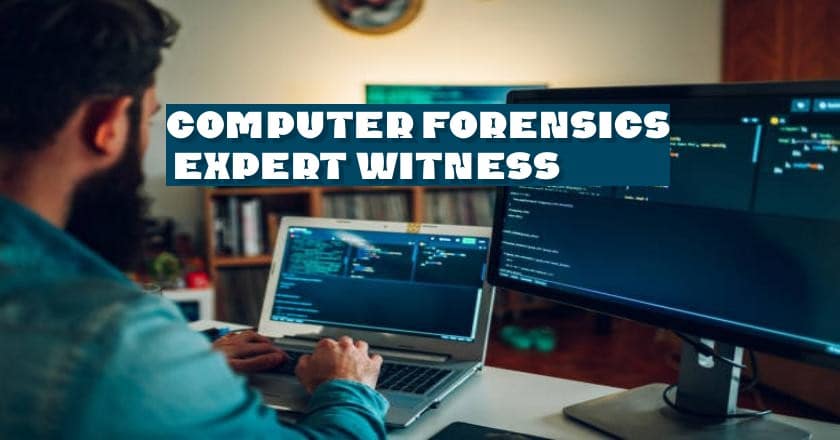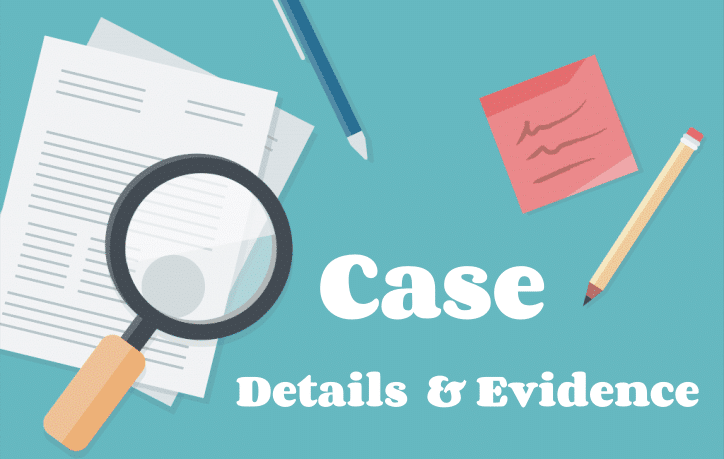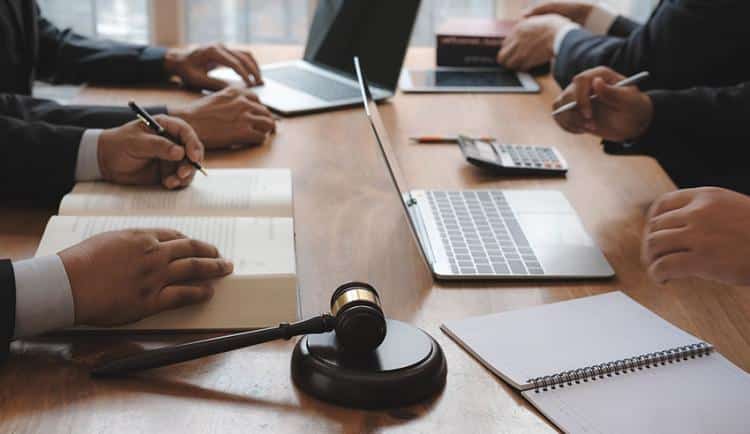Preparation of Computer Forensics Expert Witness for Court Testimony

-
Content
- Introduction
- Reviewing Case Details and Evidence
- Refreshing Technical Knowledge
- Preparing Testimony
- Coordination with Legal Team
- Document Preparation
- Final Preparation and Review
- Additional Tips
-
Content
- Introduction
- Reviewing Case Details and Evidence
- Refreshing Technical Knowledge
- Preparing Testimony
- Coordination with Legal Team
- Document Preparation
- Final Preparation and Review
- Additional Tips
Introduction
To excel as a computer forensics expert witness, an individual must possess an intricate understanding of the legal landscape, a keen awareness of evidence handling, and an in-depth familiarity with courtroom dynamics. This foundational knowledge is critical, not only for interpreting and presenting digital evidence effectively but also for navigating the complexities of legal procedures with confidence.
The most important thing is to know the laws that apply. Everything from the regulations for gathering, analyzing, and presenting digital evidence falls under this category. Rules like this are put in place to make sure that evidence may be used in court and that it can’t be tampered with.
Secondly, rules of evidence are central to the role. These rules determine what evidence is acceptable in court and how it should be presented. A computer forensics expert witness must be adept at preparing forensic reports that comply with these legal standards, ensuring that the digital forensic tools and methodologies used in the investigation withstand legal scrutiny.
Reviewing Case Details and Evidence
1.Thorough Examination of Collected Digital Evidence
For a computer forensics expert witness, the meticulous examination of collected digital evidence is the cornerstone of their contribution to legal proceedings. This phase involves an in-depth analysis of digital data retrieved from various devices, such as computers, smartphones, and servers. Utilizing advanced digital forensic tools, the expert meticulously sifts through data, identifying pertinent information that could prove pivotal to the case. The integrity of this process cannot be overstated, as the expert must ensure that evidence is collected and analyzed following established information security protocols to maintain admissibility in court.
2. Analysis of Case Facts and Context
Analyzing the case facts and context holistically is the second crucial stage. Here, the technical information is combined with the case’s overall story by the computer forensics investigator. The expert can position the digital evidence within the legal context by having a thorough understanding of the chronology of events, the nature of the alleged crimes, and the roles of the many persons involved. This thorough analysis gives the legal team clarity and direction by helping to create a cohesive narrative in which technical results match the case’s factual matrix.
3. Identifying Potential Challenges and Weaknesses in the Evidence
Identifying potential challenges and weaknesses in the evidence is crucial for the preparation of a robust computer forensics expert witness report. This proactive approach enables the expert to anticipate and address questions or doubts that may arise regarding the validity, relevance, or integrity of the digital evidence. It’s critical to recognize and confront these obstacles head-on, whether they are related to the potential for data manipulation, problems with the chain of custody, or technically restrictive forensic analysis. The expert bolsters the case’s basis in this way, guaranteeing the credibility and persuasiveness of the digital forensics expert‘s evidence.
Refreshing Technical Knowledge
1. Staying Updated on Current Technologies and Forensic Tools
In the rapidly evolving field of digital forensics, staying abreast of the latest technologies and digital forensic tools is imperative for a computer forensics expert witness. The landscape of digital evidence is constantly shifting, with new software, hardware, and methodologies emerging at a fast pace. To provide accurate and relevant testimony, an expert must invest time in continuous learning and professional development. This commitment ensures their ability to apply the most current and effective tools in their investigations, enhancing the accuracy and reliability of their findings.
2. Reviewing Relevant Technical Concepts and Methodologies
A computer forensics expert has to stay current on technology developments as well as review and reaffirm their knowledge of fundamental technical ideas and investigation techniques. Reviewing previous case studies, forensic literature, and new best practices in the field of computer forensics are all part of this evaluation process. By doing this, the expert makes sure that their analysis methods are strong enough to withstand examination in court. In addition, by continuing to learn, the expert is better equipped to explain intricate technical details to non-specialists like juries and lawyers, which enhances the impact and clarity of their evidence.
Preparing Testimony
1. Organizing Findings and Conclusions
The effectiveness of a computer forensics expert witness in court significantly depends on their ability to organize and present their findings and conclusions in a clear and concise manner. This involves distilling complex digital forensic analyses into understandable insights that can be easily grasped by the legal team, judges, and jury. The forensic report serves as the blueprint for this testimony, highlighting key pieces of digital evidence and their implications within the context of the case. Proper organization ensures that the testimony directly addresses the matters at hand, guiding the court through the technical landscape with precision.
2. Practicing Testimony Delivery
It is very important for the expert to practice giving their evidence before going into court. This practice helps improve the style of the presentation so that it is clear and makes sense, so even people who don’t have a professional background can understand complicated ideas like information security and forensics. Mock meetings can also help with controlling the speed and tone of the statement, which can make it more convincing and powerful overall.
3. Anticipating Cross-Examination
A skilled computer forensics expert witness is ready to defend their conclusions as well as convey them. It is essential to prepare answers for any queries that may come up during cross-examination. As part of this preparation, any possible weaknesses in the methodology or evidence must be found and addressed with confident, well-thought-out solutions. By being ready for these possibilities, the expert may stay composed and credible when questioned, assuring the impact and reliability of their evidence.
Coordination with Legal Team
1. Aligning Testimony with Legal Strategies
Making ensuring that the technical evidence of a computer forensics expert witness aligns with the case’s larger legal tactics is a crucial component of their job. Close collaboration with the legal team is necessary for this, entailing in-depth conversations on the subtleties of the digital evidence and how it relates to the goals of the case. Through this kind of cooperation, the expert may successfully support the legal narrative by customizing both the presentation and the results. In order to maximize the likelihood of a good conclusion, it is essential that the strengths of the case be reinforced and its shortcomings mitigated via this alignment.
2. Addressing Concerns and Questions
Maintaining clear channels of communication is essential for handling any worries or inquiries about the evidence or the upcoming testimony between the legal team and the computer forensics expert. By addressing these issues beforehand, the likelihood of surprises in court is reduced, and the coherence of the facts and arguments is strengthened.
A crucial first step in preparing a computer forensics expert witness is to coordinate with the legal team. This way, their specific expertise will be properly used to support the legal strategy and, eventually, the pursuit of justice.
Document Preparation
1. Drafting Clear and Detailed Expert Reports
A computer forensics expert witness’s development of concise and thorough expert reports is one of their primary duties. These reports act as a thorough journal of the forensic investigation, including the techniques used, the evidence looked at, and the findings reached. The court’s comprehension of the digital evidence and the expert’s credibility are both supported by these papers, thus accuracy and clarity are crucial.
2. Organizing Exhibits and Visual Aids
A crucial first step in improving the court’s understanding of the evidence is to arrange the exhibits and visual aids. These resources, which are intended to graphically convey technical concepts, might include anything from charts and diagrams to digital reconstructions. The expert’s evidence will be more persuasive if visual aids are used skillfully to bridge the knowledge gap between abstract digital forensic principles and their real-world applications in the case.
3. Ensuring Accuracy and Completeness
It is impossible to overstate how important documentation process integrity is. It is essential to make sure that all paperwork, including the forensic report, the dfir report, and any supporting documents, is accurate and full.
Final Preparation and Review
1. Conducting Final Review of Case Materials and Testimony
During the last step of planning, which is very important, a computer forensics expert witness will go over all the case materials and planned evidence very carefully. This thorough review makes sure that all parts of the digital forensic analysis fit with the case plan and that all the results are shown correctly in the statement. This careful method makes sure that the expert’s addition is accurate and useful, which strengthens their readiness to speak in court.
2. Rehearsing Testimony Delivery and Responses
Rehearsal is key to delivering a compelling and coherent testimony. By practicing the delivery of their findings and rehearsing potential question-and-answer scenarios, the computer forensics expert fine-tunes their ability to communicate complex digital forensics concepts in an understandable and engaging manner.
3. Addressing Any Last-Minute Concerns or Issues
In the last step of getting ready, you should also take care of any last-minute worries or problems that come up. It’s very important to solve these problems, whether it’s clearing up any points of confusion with the legal team, making the last changes to the visual aids, or making sure that all of the digital forensic tools used in the analysis are properly logged. This proactive problem-solving makes sure that the expert witness goes into court with confidence, knowing that they have done their research and fully understand the case.
Additional Tips
1. Maintaining Integrity and Objectivity
At the heart of a computer forensics expert witness’s role is the unwavering commitment to integrity and objectivity when presenting evidence. It is imperative that the expert remains impartial, basing their testimony solely on the factual analysis of digital evidence. This ethical stance ensures that the court receives a clear, unbiased view of the digital aspects of the case, allowing for fair and just legal proceedings.
2. Avoiding Speculation and Opinions
An expert witness must carefully navigate their testimony to avoid straying into speculation or offering opinions that extend beyond their realm of expertise. Sticking to the facts and findings derived from thorough digital forensics analysis reinforces the credibility of the expert and the reliability of their testimony. By focusing on concrete evidence and well-supported conclusions, the expert witness upholds the integrity of the judicial process.
3. Ensuring Comprehensive Support through Digital Forensics Services
In the realm of legal disputes involving digital evidence, the provision of comprehensive digital forensics services is crucial. These services, offered by experienced computer forensics expert witnesses, encompass a broad spectrum of activities, from initial evidence collection to in-depth analysis and reporting. By leveraging specialized digital forensic tools and methodologies, these experts deliver insights essential for the resolution of complex cases.






